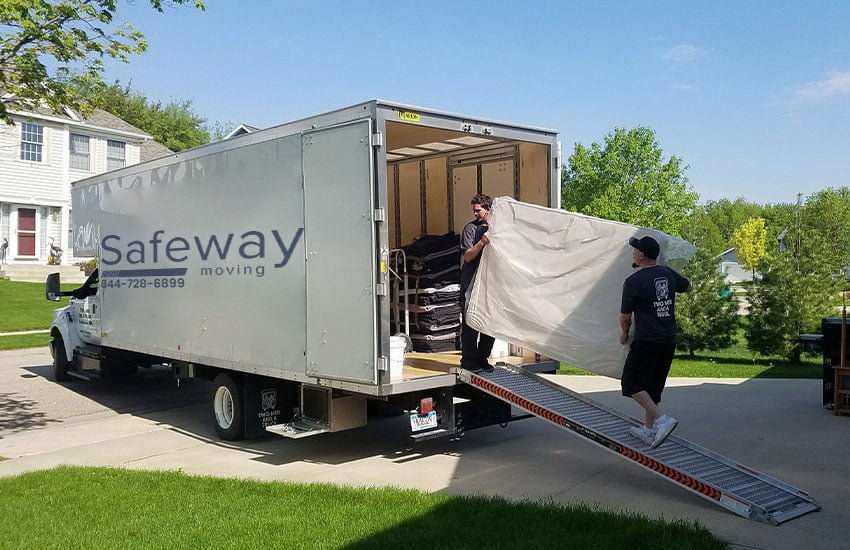When you are planning your first long-distance move, it might seem like an overwhelming experience. There are so many new terms to use, and costs you had not realized would be attached to the move. First things first, though—where do you start and when? Understanding the fine points of terminology might be a launch point.
In this article, we will be am I Looking for a Booking Agent or a Carrier information about the duties of a booking agent and carriers and how they differ. Booking agents are also called moving agents. Understanding the differences will help you as you prepare for your move.
What is a booking Agent?
The term ‘booking agent’ is one type of moving agent but may also describe all the work the agent does. There are several different types of moving agents. Each of these agents specializes in a different part of the moving process. Some duties are linked to each type of agent, although some categories rely on the expertise of a single individual or company to accomplish more of the required duties.
The booking agent will likely be the first individual you will meet when preparing for a move. Am I Looking for a Booking Agent or a Carrier? They take the necessary details of your move and plan the overall process. The initial steps of the move include speaking with the customer to inform them about the available services.
Unless you, as a customer, have definite ideas about how you want the logistics of your move conducted, a moving agent is likely to have the latest and best information about what services are available and how to accomplish your move most efficiently.
When the agent has gathered enough information to begin constructing a move plan, he or she will be able to provide a rough estimate of the cost of the move for you. To take the next steps, the agent will complete the necessary paperwork. At this point in the process, you are probably only looking at how much the move will cost.
It is important to work with the agent, though, as they may have suggestions to help make a move more economical and efficient. A commitment by the customer will allow the move arrangements to proceed. Finalizing the client’s details to set up a time and date for the move will be the next step of the process that the moving agent manages.
Origin Agent
The Am I Looking for a booking agent or a Carrier and the origin agent have closely linked duties, so it is not uncommon for the same person or company to perform the duties. The origin agent is responsible for picking up the goods involved in the move at the origin point. The duties of the origin agent will do additional planning and fine-tuning of many of the more specific details of the full move package.
The carrier agent takes the responsibility of working directly with the customer to settle on the final cost of the move as well as to determine what the mode of payment will be. This move agent is responsible for preparing the bill of lading and any other paperwork that may be required.
A third element of the original agent’s work is setting up the schedule for all of the tasks that make up the full move. These tasks include packing, loading, transporting, unloading, and unpacking your possessions. On Moving Day, if any problems or challenges arise, the origin agent will consult with the Am I Looking for a Booking Agent or a Carrier, as well as the customer service representatives of the moving company. It is important to settle any disputes promptly and properly.
The role of the agent now changes to that of the destination agent. This person or company is responsible for organizing the tasks and duties associated with delivering your household possessions to the new location. The destination agent arranges for a storage facility close to the location of the new house or other destination.
Not all moves can be completed in a single unbroken process with no intermediate steps. It may be a bee that the new house is awaiting repair or cleaning work or that weather precludes the unloading of the truck. Timing of each of the steps of the move is important, but sometimes an intermediate stage of the move is required by placing goods into storage for a short time.
Destination Agent
The destination agent is responsible for advising on and mediating any difficulties or disputes arising at the destination. The destination agent does the final closing of the paperwork on the move.
This step occurs after the customer’s goods are safely delivered to the new location. When the move is to a long-distance or international location, the destination agent is the individual or company responsible for hiring a crew to take care of the actual unloading of the truck.
Freight Agent
The freight agent is the one who steps into the picture if the move is an international one or a long-distance move where the destination is a location that cannot be reached by truck, such as an island.
The freight agent coordinates and supervises the shipment of the freight. He or she collects information about the freight and decides on the appropriate method of transportation. The freight agent determines and times and dates for pickup of the goods and delivery at the destination.
If any documents at customs, licenses, or other paperwork are required, they are the responsibility of the freight agent. The agent tracks the shipment’s progress and provides status updates to the customer. When household goods shipment has safely arrived, the freight agent is responsible for collecting payment.
The role of moving agents is to ensure that the move goes as smoothly as possible, whether one or all of the moving agents described above is necessary. The moving agents make the appropriate arrangements and act as the customer and the moving company liaison. The moving agent takes steps to ensure that your move is handled professionally and safely.
Moving brokers are also known as brokerages. They are somewhat like travel agents for your move. The brokers don’t own moving trucks and don’t hire staff to perform the physical tasks. They just coordinate the move with other firms.
Believe it or not, hiring an agent may make the whole move a little cheaper and easier because the broker takes care of all the logistics and does the legwork of getting quotes from several competing carriers. However, a lower price may not be achieved. It is also true that some brokers are not to be trusted.
What is a Moving Carrier?
Unlike moving brokers, moving carriers own their fleets of moving vans. They hire in-house moving teams and facilitate the moves themselves. If you choose a full-service mover, a carrier is likely to be more transparent since a single company takes care of the entire process, and the customer’s goods are in a single responsible entity. Carriers can cost more money than moving brokers and may need the customer to do additional research and planning.
Although the two business models may seem very different, the differences between the two may be shades of gray rather than black and white. Some companies are registered as both brokers and carriers. This approach allows the company to perform the roles for the customers depending upon what is needed.
Sometimes the company won’t tell you if they are brokers or carriers. If you want to do some sleuthing, the US Department of Transportation gives you free access to its Federal Motor Carrier Safety Administration (FMCSA) database. Customers can look up a Safeway moving company to determine how it is registered.
Summary
Choosing a moving agent or a carrier will largely depend on the customer’s needs. Complicated or long-distance moves and those involving international relocations may be best handled through an agent.
There can be many threads in such a move, and an inexperienced person may find something important gets left out of the equation. Today, there is a lot of information available on the internet that can help with planning, but unfortunately, there is a lot of false or misleading information.
When choosing an agent or a carrier, it is important to do the necessary research to determine if the individuals or companies are experienced, honest and professional. Look for current licenses, insurance, and reputation records before choosing the agent or carrier who best represents your interests. Building trust is one of the most challenging characteristics of a good business, regardless of the type. Trust is not an immediate state but is built over time.

